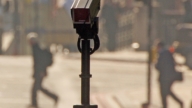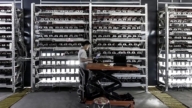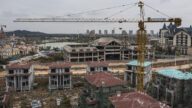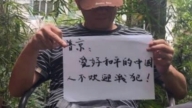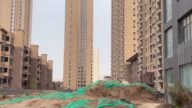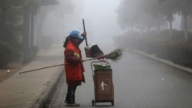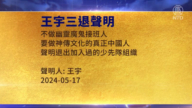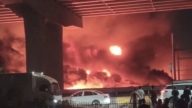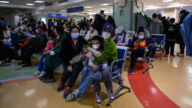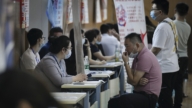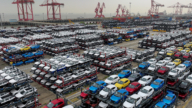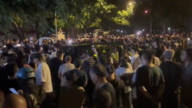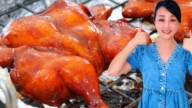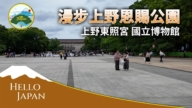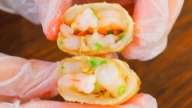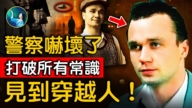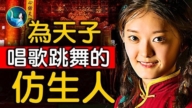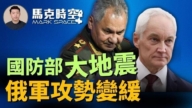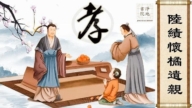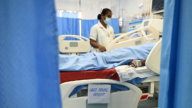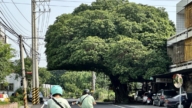【新唐人2011年10月26日訊】10月24號,中共官員在中外記者會表示,為了加強經濟資料保密工作,境外媒體在經濟數據發佈之前的預測行為,必須在法律允許範圍內進行,打擦邊球不行,超出範圍更不行。他們並警告在中國的境外媒體工作者:不該問的別問。
記者會上,有關單位介紹兩個經濟資料洩密案,一個是原國家統計局辦公室秘書室副主任孫振,因多次洩露統計資料給證券行業從業人員,被判處有期徒刑五年。
另外一個是原中國人民銀行研究人員伍超明,他將合法獲得的統計資料,洩露給證券行業從業人員,被判處有期徒刑六年。
他們兩人都是副處級官員,法院認定他們犯有「故意洩露國家秘密罪」。
中共國家保密局發言人杜永勝:「有的境外媒體通過多種渠道、多種方式,向我經濟部門和金融證券企業從業人員核對、求證他們的預測數據。這些都是不允許的。」
對此,北京憲政學者陳永苗認為,這些官員在接受採訪時,如果涉及到國家機密他們可以選擇不說,如果是在公開場合發表的資料數據,那媒體求證是追求事實準確的必要做法,當局不能因此而做出禁止的限制。
北京憲政學者陳永苗:「這跟國家金融危機有關係,還有維穩,維護穩定有關係吧,他可能就是擔心這個,你看官方媒體,他就會報這個虛假的數據,那外媒就會報真實的數據,那中共他本身會擔心這些真實的數據洩漏出去的話,對他本身政權穩定造成衝擊,或者對他的監管造成衝擊,所以他可能抓這兩個人殺雞儆猴,告訴他們部門裡面的人,別再洩漏秘密了,然後再警告外媒。」
中共國家保密局發言人杜永勝沒有明確說明,哪些境外媒體洩露了中國的涉密經濟資料,不過他提醒這些海外媒體工作者,在中國就要遵守這裡的法律。
杜永勝說:「首先你接觸不到中國的國家秘密。如果你偶然接觸到了中國的國家秘密,我給你出一個招:儘快報告,不要碰它。否則就可能有麻煩。」
在中國「國家機密」常被拿來當擋箭牌,目地就是限制記者的言論,其中屬於保密範圍的界線,往往模糊不清。
北京憲政學者陳永苗:「你可以看一下美國或者其他國家,從來沒有說,把這種經濟數據當作國家秘密來保護的,經濟數據統計局的數據,這不應該當作一個國家秘密,或者是國家安全方面作為保護,他不應該來譴責這些中外媒體做這方面的報導,因為這是言論自由和新聞自由的問題。」
總部設在布魯塞爾的國際記者聯合會,不久前對揭露「洛陽性奴案」的記者遇害事件發表聲明,譴責中國濫用「保守國家秘密法」,騷擾和恐嚇新聞從業者。
新唐人記者秦雪、黃容、薛莉採訪報導。
CCP Warns Foreign Media: Don』t Seek the Truth
Anchor:
On October 24, the Chiniese Communist Party (CCP)
announced in a press conference that in an effort to safeguard,
the country』s economic data, any economic forecasts
made by foreign medias must be within the allowable limits set by the CCP.
They warned foreign correspondents and journalists:
“Don』t ask questions that should not be asked!”
Reporter:
In an effort to drive home their point, the CCP talked about
two cases where economic data was in fact leaked.
One case involved Sun Zhen, the former deputy director
of the General Office of the National Bureau of Statistics.
Sun was accused of leaking economic data to the securities industry,
and was sentenced to five years in jail.
The other case involved Wu Chaoming, a former researcher
of People』s Bank of China.
Wu illegally obtained statistical data
and likewise leaked it to the securities industry.
He was sentenced to six years in jail.
Both men are deputy division level officials.
The court found them guilty of “deliberately leaking state secrets.”
Du Yongsheng, spokesman for the China State Security Bureau:
“Some foreign medias use a variety of channels and ways to double check or verify their economic forecasts
with the CCP』s economic department and securities industry.
This is not allowed.”
Chen Yongmiao, a Beijing constitutional scholar disagreed
with the CCP』s line of thinking noting that
the two officials could』ve choosen not answer questions
relating to state secrets.
However, if the data they were referring to was
already available in the public domain,
then media has the right to verify it,
because they have to guarantee the accuracy of such data.
The CCP authorities can』t restrict reporters
from reporting the truth.
Chen Yongmiao, Beijing constitutional scholar:
“This is related to the China』s current financial crisis, and the CCP』s desire to maintain social stability.
The CCP is worried about this, and thus you can see
the CCP』s state-run media reporting false data. But foreign media only uses real data.
The CCP is afraid that the power and stability of its regime
would be greatly impacted if the public knew the real data.
That』s why they caught those two people
and threw them in jail.
It was a warning to others not to leak official data,
and warned foreign medias not to double-check the data that the CCP says is real.”
Du Yongsheng, the spokesman for the China State
Security Bureau, didn』t mention which foreign medias leaked the economic data,
but alerted those correspondents to abide
by the CCP』s laws.
Du Yongsheng, spokesman of China State Security Bureau:
First, you have no right to access China』s national secrets.
But if you come across them by accident, I』ll give you a hint:
report the incident as soon as possible, otherwise, you guys will be in trouble.”
In China, the term, “state secrets," is often used as a tool
to limit medias, as there is no clearcut definition of what constitutes a national secret.
Chen Yongmiao, Beijing constitutional scholar:
In the United States and other countries,
no government bothers to protect their economic data,
nor do they regard it as a national secret.
Economic statistical data cannot be treated as a national secret,
nor can it be protected as a national secret.
The CCP shouldn』t forbid foreign medias
from reporting real economic data.
This is a question of press freedom and
the freedom of expression.”
Upon learning that the Governor of Calif. was coming to visit,
Few days ago, Brussels-based International Federation of
reporters issued a statement regarding a reporter who was killed for revealing
China』s “Luoyang Sex Slave Case.”
The Federation condemned the CCP』s abuse of
its “State Secrets Act,” which allows them to continually harass and intimidate journalists.
NTD reporters Qin Xue, Huang Rong and Xue Li



